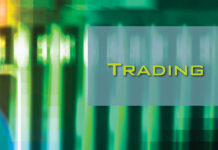Analysis of the European and US corporate bond markets by Coalition Greenwich has found that block trades and counterparties are a far greater concern for buy-side traders dealing in Europe’s bond markets.

The report, ‘European Bond Trading Innovation: Lessons from Across the Pond’ looked at the relative evolution of fixed income trading in the two regions, taking in trading protocols and market activity levels.
While Europe’s corporate bond market is estimated to be a third of the size of the American market by traded volume, it has historically had a higher proportion of electronic trading, with aggregate electronic volume in credit standing at 47% against 31% for US investment grade (IG). Nevertheless, 47% of European corporate bond investors reported executing orders over $15 million in European IG was ‘extremely difficult’ compared with only 21% for US IG.
Report author Kevin McPartland wrote, “This divergence in trading style is both the cause and effect of several other behavioural characteristics of each market. We believe that while some of these differences are structural and unlikely to change, others should, in fact, converge in an effort to achieve better execution quality across the board.”
The adoption of all-to-all trading in the US is one point of divergence, with 33% of European traders noting the counterparty they trade with matters a lot, compared to just 14% of US traders.
“This should come as no surprise, given the prevalence of name-disclosed request for quote (RFQ) trading in Europe and the sending of those RFQs to five or fewer dealers,” wrote McPartland.
Responding to the report, Vuk Magdelinic, CEO of analytics firm Overbond said, “The findings get to the core of the issues with European corporate bond trading. For electronification to truly take hold in European fixed income trading, more automation is needed on the sell-side.
The fragmented nature of the market structure in the region means that sell-side desks are having to spend a significant amount more time and effort to price the RFQs, which impacts the efficiency across the desk. With such a significant flow of RFQs going through only five dealers in competition, greater automation for some of the smaller dealers will enable more competition and larger overall volumes in the market executed electronically.”
McPartland concluded the report by observing that improving data quality in Europe over time, should further widen the path toward trading beyond RFQs and into other trading protocols.
©Markets Media Europe 2025

























